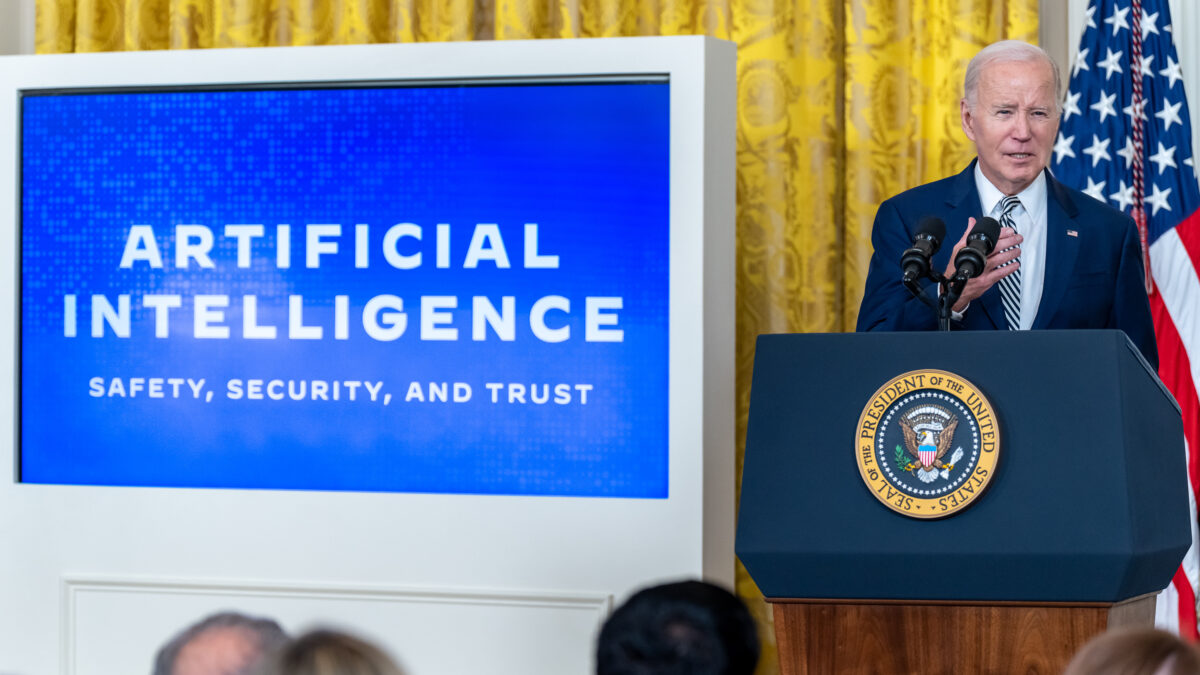
President Trump issued two executive orders last week, barring Americans from transacting with popular apps TikTok and WeChat in 45 days. Both apps are owned by Chinese companies, but are different in many ways.
TikTok has a singular function: letting users create and share short, fun videos. Its parent company, Beijing-based Bytedance, launched TikTok in 2017 to target users outside China, after Bytedance found success in launching the Chinese version of the same app.
WeChat, owned by Shenzhen-based Tencent, is a messaging app that combines the functionalities of several “big name” apps like Facebook, Instagram, and Uber. WeChat lets its users chat, share photos, send voice messages, read the news, play games, pay bills, and send money.
WeChat counts more than 1 billion people as monthly users, the majority of whom reside inside China. Outside China, the app has become an indispensable tool for Chinese immigrants, students, and visitors who long to keep in touch with families and friends back home.
The Size and Reach of WeChat’s Ownership
Despite their differences, what TikTok and WeChat share in common is the enormous amount of user data they collect as well as the censorship they carry out on behalf of the Chinese government. In his executive orders, Trump said the data collection of both of the apps “threatens to allow the Chinese Communist Party access to Americans’ personal and proprietary information.” The biggest concern with TikTok is that the data it has collected from its foreign users may assist China’s intelligence community in blackmailing them in the future.
The U.S. government and military have all banned their personnel from having TikTok on their government-issued devices. While there are serious concerns about TikTok, there is a clear-cut solution. Two American tech companies, Microsoft and Twitter, are engaging in independent discussion with ByteDance to purchase TikTok’s U.S. operation. If either deal goes ahead, it should ensure that at least the data collection and usage of American users will follow U.S. law and, hopefully, not again fall into the hands of the Chinese government.
Tencent boasts a market capitalization of $600 billion (far larger than ByteDance’s $75 billion) and invests heavily in U.S. technology companies, Hollywood, music, and sports industries. Given Tencent’s size, business reach, and that a majority of WeChat users are Chinese, a ban on WeChat is far more significant than the ban on TikTok.
WeChat’s Ties to the Chinese Communist Party
Complicating matters is that no Chinese companies can be successful in China without cooperating closely with the Chinese government. As evidenced by its recent role in censoring information about the coronavirus pandemic, Tencent is no exception.
Working with Chinese government censors, Tencent censored coronavirus-related postings as early as December 2019 by shutting down news sites and online forums, blocked certain keywords related to coronavirus outbreaks, and deleted online postings critical of Communist Party leader Xi Jinping and the government’s handling of the virus.
Other online posts and hashtags related to demands for freedom of speech since the death of Dr. Li Wenliang, a whistleblower, were also quickly deleted. When Wuhan-based writer Fang Fang started keeping a diary on WeChat about lives in the epicenter of the pandemic from February to early April, many of her WeChat entries were quickly deleted and her WeChat account was shut down multiple times.
Internationally, Tencent plays a key role in helping China expand its geopolitical reach and achieve strategic goals. For example, in Africa, a top destination of Beijing’s ambitious “One Belt, One Road” initiative to expand Beijing’s sphere of influence, Beijing has been combining its investment with pushing for the internationalization of its currency. WeChat’s payment function makes it easier for African businesses, customers, and tourists to spend Chinese currency, increasing the proportion of its settlement in Africa from 5 percent in 2015 to about 12 percent in 2018.
WeChat also helps the Chinese government spread propaganda and monitor the overseas Chinese population. In her submission to New Zealand’s Justice Select Committee Inquiry into Foreign Interference, Professor Anne-Marie Brady stated:
The outcome of the widespread adoption of Wechat outside China is the creation of a backdoor means to control China-related discourse in foreign countries through self-censorship, monitoring of content, and the threat of closing down foreign Wechat accounts that do not comply.
Furthermore, according to The New York Times:
Chinese security forces have also regularly used WeChat to intimidate and silence members of the Chinese diaspora, including minority Uighurs seeking to raise awareness of harsh crackdowns in their homeland in western China.
A 2016 report from Amnesty International ranked 11 tech companies on meeting human rights responsibilities by protecting user online privacy via appropriate encryption. In a revealing result, WeChat came in dead last, scoring zero out of 100.
WeChat’s parent company, Tencent, even helps the Chinese government restrict the First Amendment free speech rights of Americans. After Daryl Morey, general manager of the NBA’s Houston Rockets, tweeted support for Hong Kong protesters, Tencent joined Chinese state broadcaster CCTV to stop streaming all of the Rockets’s games in China. Not wanting to risk the NBA’s $1.5 billion revenue stream from China, Morey and the NBA all quickly apologized for how Morey’s “regrettable” comment had “deeply offended many of our friends and fans in China.”
Tencent is also involved in major Hollywood productions like “Top Gun: Maverick,” which probably explains why the Japanese and Taiwanese flags were removed from Maverick’s iconic bomber jacket since Beijing harbors hostility to Japan and insists that Taiwan is a province of China.
Getting China to Play Fair
So, what do Tencent and other Chinese tech giants get in return for working closely with the Chinese government? The Chinese government banned foreign technology companies such as Facebook and Twitter, to minimize foreign influence on Chinese and protect selected national champions, such as Tencent, by providing a favorable business environment for them to grow without much foreign competition.
Past U.S. administrations did little to confront the Chinese government’s bans of American internet companies. They also took a hands-off approach to Chinese technology companies in the United States, giving these companies unrestricted access to American capital markets and its technology industry, helping Tencent and other Chinese technology companies grow into global tech leaders.
The Trump administration, however, is the first attempting to address concerns with Chinese tech companies and the lack of reciprocal treatment the Chinese government affords American tech counterparts. In the final analysis, given all the data, security, and geopolitical concerns, a ban on WeChat is the right thing to do. Such a ban, however, will create hardship among its users and could even undermine one of the Trump administration’s strategic goals.
Banning WeChat in America Comes With Costs
Americans of Chinese descent worry they will not be able to easily keep in touch with loved ones back home, as many Western messaging apps such as WhatsApp are already banned by the Chinese government. Some have so far as to call the president’s order “cruel.” The American Civil Liberties Union said the WeChat ban “would violate the First Amendment rights of users in the United States by subjecting them to civil and possibly criminal penalties for communicating with family members, friends, or business contacts.”
The president’s executive order probably could be challenged in court. Even if it isn’t, the decision certainly won’t help Trump win many voters of Chinese descent. Yet Trump’s tough stance on China is welcomed by overseas Chinese dissidents, who have expressed concerns about WeChat for years.
One of the unintended consequences of a ban on WeChat might be a greater challenge for the Trump administration’s effort to draw a clear distinction between the Chinese Communist Party and the Chinese people. As Paul Mauser, a New York Times journalist, pointed out, WeChat is “one of the few digital bridges connecting China to the rest of the world” (albeit a bridge heavily guarded by the CCP).
In his most recent China policy speech, Secretary of State Mike Pompeo called for the Chinese people to demand the Chinese Communist Party change for the better. Banning WeChat will isolate the Chinese people further, leaving them with even fewer alternative sources of information outside of the Chinese government’s propaganda. Even worse, not being able to communicate with their families and friends outside China may turn some, if not a majority, into nationalists more inclined to be sympathetic or supportive of the CCP. That’s not the kind of change the Trump administration wants to induce.
Finally, it’s highly likely that Beijing will retaliate if the WeChat ban goes into effect. Unfortunately, many American companies are in a vulnerable situation because they rely on the Chinese market — imagine if Beijing banned iPhones or forced Microsoft to sell its cloud service. American businesses are already suffering from the prolonged pandemic shutdowns. Losing access to the vast and enormous Chinese market will only add more financial grief. If these pains lead to any layoff of American workers or a significant downturn in the stock market, it won’t bode well for President Trump’s reelection.
The Trump administration is in a challenging position. From its trade war to the tech war, confronting Beijing always means some businesses and people in the United States and China will suffer. Yet, keeping the same failed China policy from the past means giving the CCP the green light to fulfill its global ambition — becoming the hegemon and dismantling the liberal world order along the way. One thing is certain: if the CCP succeeds, all of us will suffer.









